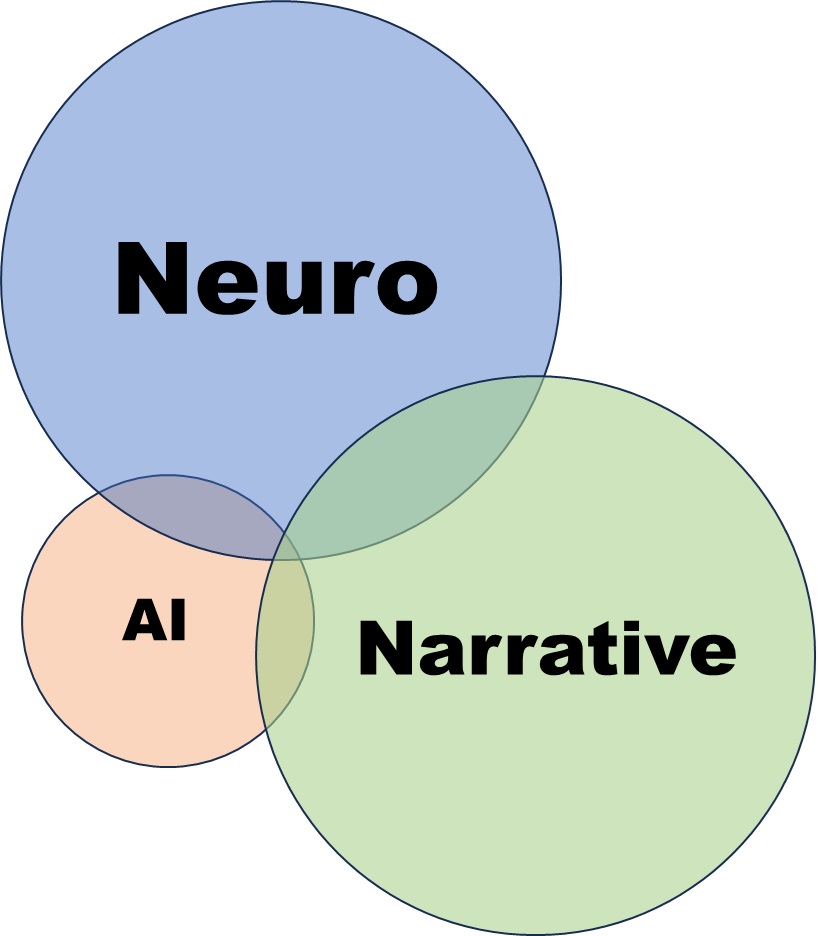Neuro, Narrative and AI: Thinking about Thinking
Thinking in contemporary worlds is no longer an activity confined to humans—if it ever was. Human thinking is joined with machines, animals, networks of data and sensing, physical manipulations of brains and nervous systems, as well as the complex narratives and world-building experiments of contemporary film, fiction, theater and arts. These diverse approaches raise the possibility of more-than and other-than-human capacities and possibilities, they challenge the distinctiveness of the human as a thinker; they extend and transform human capabilities; and they introduce both significant power and significant forms of error whose sources and impacts are both human and much more than human—planetary and molecular, communal and ecological, generational and historical. Despite these changes, the question of being human remains at the center of them, along with classic questions about the relationship between thinking and living well.

Philosophy, along with mathematics and logic, has long held sway over the definition and debates of what thinking is, and how it relates to questions of flourishing. But what if there is another way? What if the old fundamental questions could be examined using a different lens? What if by exploring apparently distant knowledge realms as Neuro (the knowledge, understanding and manipulations of brains, neural systems and cognitive capacities), Narrative (the myriad forms of narrative-making, story-telling, world-building, and fabulation that create meaning and guide the formation of values) and AI; (the controlled engineering of systems that rapidly and flexibly learn, process and create data and information), we could answer fundamental human questions. At the intersections of each of these areas are conceptual problems, ongoing practices, and ethical or political challenges that might not be evident for everyone, but are shaping human societies and its future.
In exploring the overlaps of these three areas, we seek to shake loose settled ways of looking at the problem of thinking. Thinking big about thinking requires asking big, maybe even dangerous, questions: are current habits of thinking capable of change? Can we think thinking without the category of the human, or the individual (or collective)? Can we think thinking with emotion not against it? Can we think beyond the idea of intelligence as a possession of individuals, and its implicitly hierarchical and normative underpinnings, and towards thinking as a process? Can we think beyond human thinking as exceptional (and therefore superior), and towards diverse intelligences, neuro-diversity for problem solving, or thinking with machines, rather than worrying about or encouraging replacement by machines? Can we think beyond the suppression of emotion or affect to a world in which emotion is a reflective and crucial aspect of thinking processes, rather than a dangerous and despised one? Can we think beyond racist and colonial models of thinking—thinking as possession, replacement, access to Land, or eugenics?
Think about thinking with us.

